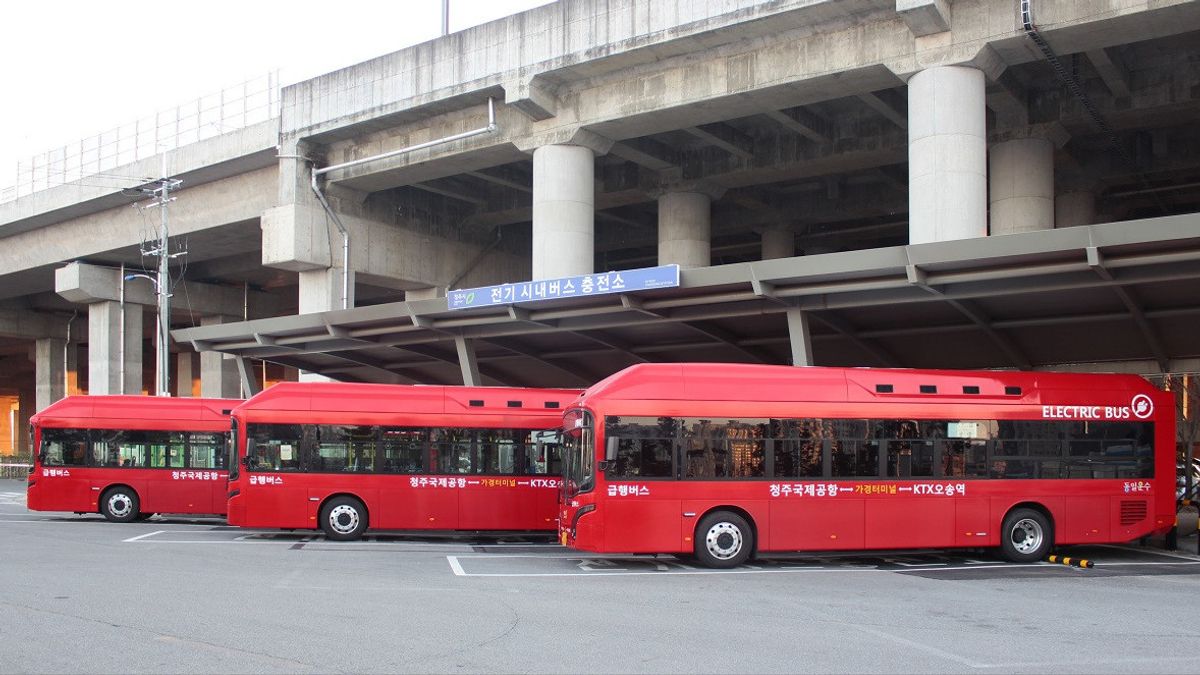JAKARTA - Fifty-nine taxi operators, bus POs and shipping companies in South Korea, have agreed to join the eco-friendly movement, using a fleet of carbon-free vehicles starting in 2030.
Initiated by a transportation rental company last March, this eco-friendly movement is supported by around 111 local companies, including companies in manufacturing and finance.
Recently, four logistics shipping companies Lotte Global Logistics, CJ Logistics, SK Networks and Hyundai Glovis along with 55 bus and taxi operators in the Ginseng Country joined this movement.
Witnessed by the Minister of the Environment Han Jeung-ae, each company representative took part in the green movement ceremony at The-K Hotel Seoul, Gangnam on 26 May.
Minister Han said the government would do more preparations to support companies committed to operating carbon-free vehicles. For example setting up more filling stations nationwide in public garages for buses and taxis and at logistics depots for delivery trucks, and prioritizing companies in offering government subsidies needed to buy or rent carbon-free vehicles.

"The transition of buses and taxis that are important for society to carbon-free vehicles, contributes a lot to reducing greenhouse gas emissions and aerosols that threaten the country's environment and public health," said Minister Han as reported by the Korea Times.
"I hope this initiative will spread throughout our country, as our transportation industry is leading this carbon neutralization movement," he continued.
A total of 8,385 vehicles are operated by these 59 companies, of which 458 are carbon-free. Starting with 57 green vehicles this year, four logistics companies plan to buy or lease 800 green vehicles by 2025 and 2,500 by 2030.
Taxi and bus operators also plan to introduce 380 environmentally friendly vehicles this year to add 2,900 vehicles by 2025 and a further 5,900 vehicles in 2030.
If the plan is achieved, about 1.29 million vehicles operated by 111 companies will be electric or hydrogen vehicles by the end of 2030 in South Korea.
"That's about 33.5 percent of the government's goal of having 3.85 million carbon-free vehicles in the country," a ministry official said.
"Most of these vehicles run near residential areas and their emissions cause a lot of air pollution. So switching to environmentally friendly vehicles must be done," he said.
The English, Chinese, Japanese, Arabic, and French versions are automatically generated by the AI. So there may still be inaccuracies in translating, please always see Indonesian as our main language. (system supported by DigitalSiber.id)













